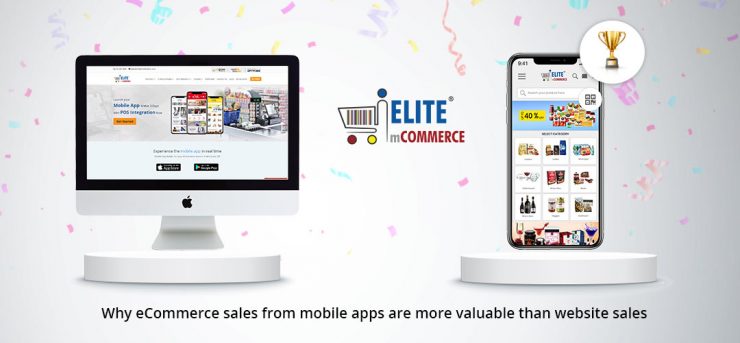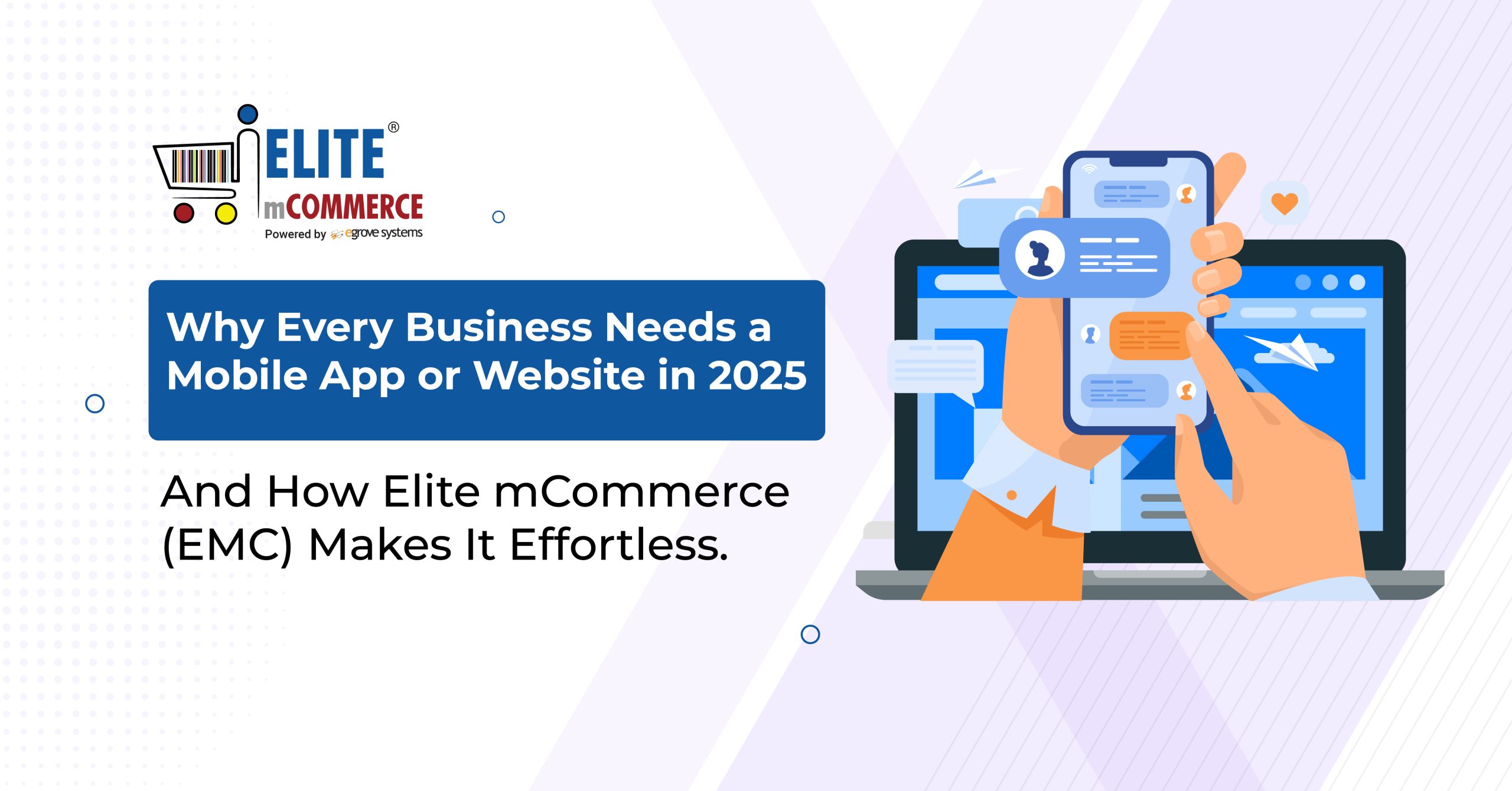Even as the eCommerce industry has positioned itself to overtake brick-and-mortar retail businesses in sales, the online retail market is still evolving. The next stage that industry leaders have moved into is mCommerce, using mobile apps as sales platforms for a business. To understand why mobile apps are so valuable as a sales platform, it’s important to recognize the key differences that make mobile apps more than just an alternate sales channel for eCommerce.
Mobile is the Dominant Platform
One basic reality of online browsing is that mobile traffic has grown dramatically over the past few years. As of 2019, mobile phones represented 53.3% of traffic worldwide, making them the dominant form of web browsing. Likewise, 60% of organic search traffic came from mobile devices. Users also spend more time on mobile devices than they do on desktops/laptops: 203 minutes compared to 128 minutes per day. With this extended use of mobile devices, the next step is to provide a mobile app specifically tailored to a business’s needs and customers’ goals.
The 2019 holiday season saw the largest growth in mobile sales, a 35% increase from the previous year. 65% of last year’s Black Friday sales were driven through mobile eCommerce platforms. In light of the coronavirus pandemic, more and more users are adopting mobile devices for ordering outside of high-volume sales periods.
Transitioning to Apps
For browsers who visit an eCommerce site on their phone’s web browser, transitioning to an app is a way to view products for sale more conveniently and easily. Even when websites are now designed for mobile responsiveness and loading speeds, apps can offer a more consistent and appealing browsing experience. eCommerce website operators can use banners and pop-over messages on the mobile version of their website to offer to install a free shopping app.
Read more :- Emojis in Push Notification Can Make Your Customers Feel Special
Why Apps are Different
With consumers spending so much time on their phones, mobile users are an opportunity for increased conversion rate to paying customers due to the amount of time they spend shopping. This advantage alone is enough to justify investment in mobile platforms above other sales channels, but there are many others.
Initially, consumers were more hesitant to make digital purchases, but it has become easier thanks to third-party payment platforms such as PayPal lowering the barriers to entry. Integration with digital wallets like Apple Pay has also led to fewer steps between order and checkout.
One of the key reasons why businesses are pursuing mobile app sales is because apps are exclusive to one store’s products. On the mobile web, your store is one among many. Price comparisons or other motivations may cause customers to leave the website and make their purchase elsewhere, but when shopping from a mobile app they are less likely to switch to another retailer to shop. A self-contained ecosystem guarantees that more of the customer’s purchases come from the same store. According to Button’s 2019 report, mobile apps had an 86% higher conversion rate compared to mobile web stores.
Analytics and Marketing Advantages
Apps provide more control over the presentation of products and content than a website and also enable businesses to connect with customers more closely. Email marketing is increasingly filtered and ignored due to massive overuse, but apps allow a direct line to customers. Special offers and deals can be tailored to users who check the app for the latest arriving products and discounts. Loyalty programs can be offered to provide rewards for those who choose your store as a preferred vendor.
Even non-active users can be reached through push notifications that can be intelligently targeted based on the grouping of the audience based on their shopping behaviours. Mobile apps enable businesses to collect more detailed data about their customers’ shopping habits and adapt accordingly. Geolocation data collected from app users allows sellers to make accurate location-based recommendations and advertisements. Other data, such as level of activity and number of purchases, can be used to segment users into different categories and market to them separately—for instance, bringing back customers who haven’t made recent purchases.
Businesses that recognize the advantages of mobile platforms are shifting their focus to where the greatest sales potential exists. Any store that does business online should launch an eCommerce app for improved sales and customer retention.









Add comment